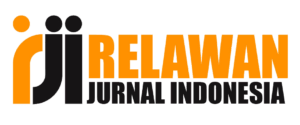What Happened in Talaga Biru? A Study of Ecological Literature
Abstract
This work aims to provide a detailed account of the moral teachings conveyed in the North Halmahera Talaga Biru Folklore. This method of this study employs qualitative research. The data collection technique employs interviews, audio recordings, and a comprehensive review of relevant literature. On the other hand, analyzing data involves multiple steps, including data reduction, display, verification, and conclusion. The research results reveal two overarching messages: positive and negative. The good messages encompassed in the text are as follows: 1) hope, 2) struggle, 3) sacrifice, 4) loyalty, 5) cooperation, 6) cultural values, 7) patience, 8) friendship, and 9) religious values. On the other hand, the contrasting message conveys a sense of sorrow. Sadness is a negative emotion due to the excessive and unreasonable sadness depicted in the Talaga Biru mythology. The depicted grief revolves around the character Majojaru, who experiences profound sorrow and sheds tears for a continuous duration of three days and three nights, ultimately resulting in their demise. In addition, it is anticipated that this will contribute to the development of theoretical knowledge about the moral themes found in folklore from North Halmahera. Moreover, it can serve as a valuable resource for managing culturally and literarily oriented tourism. Furthermore, this study is anticipated to make a valuable contribution to endeavours aimed at enhancing public consciousness regarding the significance of conserving the adjacent natural environment as a habitat for all global ecosystems.
References
Anwar, K. (2019). Oral Tradition (Literature): Conservation of Ecology and Promotion of Tourism Destination. Magistra Andalusia: Jurnal Ilmu Sastra, 1(1). https://doi.org/10.25077/majis.1.1.3.2019
Hughes, J. D. (2013). Ecology and Literature. Mahatma Gandhi University Kottayam.
Karimullah, S. S. (2023). Reflections on Human-Nature Relations: A Critical Review in Islamic Humanities. Adabiyah, 23(2), 189–206.
Koentjaraningrat. (2009). Pengantar Ilmu Antropologi. Rineka Cipta.
Pusat Bahasa Kemdikbud. (2016). Kamus Besar Bahasa Indonesia (KBBI). Kementerian Pendidikan Dan Budaya.
Rahimsyah, M. B. (2007). Kumpulan Cerita Rakyat Nusantara Lengkap dari 33 Provinsi. Bintang Usaha Jaya.
Rasiah, R., Wantasen, I. L., Tulung, G. J., Rauf, R., Bilu, L., & Sofian, N. I. (2024). ‘I Have Been Faithful to Thee, Cynara’: Parodying Canonical Pro-Slavery Novel in The Wind Done Gone. World Journal of English Language, 14(3), 62. https://doi.org/10.5430/wjel.v14n3p62
Rauf, R. (2016). Webtoon: Subjektifasi Sastra dan Media Sosial (LINE) dalam Perspektif Sosiologi Sastra Alain Badiou. In Dr. T. Widyastuti, Dr. E. Latifah, & M. H. Ratna Djumala (Eds.), Seminar Nasional Kesusastraan Indonesia Mutakhir (p. 317). HISKI Komisariat Universitas Indonesia.
Rauf, R. (2017). Proyeksi Astral: Analisis Wacana Fiksi Posmodern dalam Naskah Film Insidious. Jurnal POETIKA. https://doi.org/10.22146/poetika.25994
Rauf, R. (2018). Novel Divergent Sebagai Prosedur Kebenaran: Subjektifasi Veronica Roth dalam Perspektif Alain Badiou. Universitas Gadjah Mada.
Rauf, R., & Raemon. (2024). Kelisanan dan Keberaksaraan Sulawesi Tenggara: Dari Waktu ke Waktu. In K. Saddhono (Ed.), BUNGA RAMPAI Bahasa Sastra dan Pemahaman Lintas Budaya (pp. 159–176). AURA (CV Anugrah Utama Raharja).
Rusli, M. (2023). Interdisciplinary Approach on Contemporary Islam in Indonesia. Adabiyah, 23(2), 355–378.
Setyorini, A. (2016). Ecology, Technology and Dystopia: an Ecocritical Reading of Young Adult Dystopian Literature. Proceedings of International Conference on Language, Literary and Cultural Studies (ICON LATERALS) 2016.
Sitter, J. (2008). Eighteent-Century Ecological Poetry and Ecotheology. Religion & Literature, 40(1), 11–37.
Subuh, R. D., Rauf, R., Maricar, F., & Ulya, A. (2024). The Utilization of Ternate Oral Tradition for the Identification of Potential Disasters. ETNOREFLIKA: Jurnal Sosial Dan Budaya, 13(1), 134–143.
Van Lier, L. (2004). The semiotics and ecology of language learning. Utbildning & Demokrati, 13(3), 79–103.
Zhang, Q., Zhou, X., Guo, B., Bao, Y., & Wang, Q. (2020). Syenergetic Realization Path of Water Ecological Civilization Construction and Human-land System Optimization under the “Three Elements” Structure. Coastal Research, 104(Special Issue), 854–857.

This work is licensed under a Creative Commons Attribution 4.0 International License.













